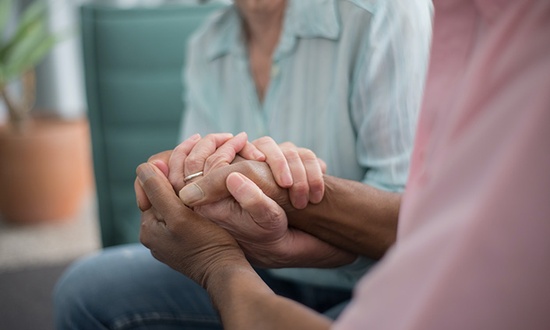Question from a reader:
A close loved one passed away recently, and when I shared on social media, the responses were mostly wonderful, endearing, and compassionate. One person, however, wrote a quick “sorry for your loss,” which was fine. But then she immediately went into several sentences about the loss of her own loved one. I felt totally dismissed and my grief minimized. I just couldn't wrap my brain or heart around anything she was sharing.
Answer from Heidi McLaughlin, EPM staff:
I am so sorry to hear about the loss of your loved one. I completely understand how you feel and absolutely know what it feels like myself to feel dismissed in my moment of pain by what others say and share, when silence and the ministry of their quiet presence might have been more welcome. We do have a few articles on our website that deal with what not to say to someone who is grieving, and I know Randy experienced what you are mentioning himself after Nanci’s death. It helped him to really try and give people the benefit of the doubt that they were attempting to connect with him through their own experience, but I know he would agree with you that it was trying.
He writes in Grieving with Hope:
In conversation, people might change the subject from your grief to theirs. After Nanci died, I had painful exchanges with people at church who attempted to relate to me by telling detailed stories of their loved one’s suffering and death. Temporarily, I decided to stay home. However, I was missing the encouragement I needed. Gathering with God’s people can feel risky when we are emotionally vulnerable. Yet the risk of missing comfort by not gathering is greater.
Resolve not to allow someone else’s insensitivity to cause you anxiety or bitterness, and be quick to forgive. And realize what you are forgiving may not be sin, just sincere and misguided attempts to help. Forgiveness is a command and a choice (see Matthew 6:14–15). Lack of forgiveness will inhibit healthy grieving.
There are a few others places this has been addressed in past blogs and articles on our website already to some extent, one of them featuring a book by Randy’s friend Nancy Guthrie titled What Grieving People Wish You Knew about What Really Helps (and What Really Hurts): (And How to Avoid Being That Person Who Hurts Instead of Helps).
Comforting Grieving People and Encouraging Them to Hold on to Solid Truth
Three Things to Remember When Giving Comfort to Grieving People
I will be praying that the God of all comfort will be very near you as you grieve the loss of your loved one.





